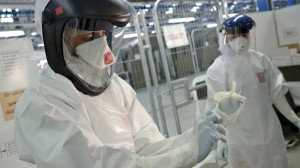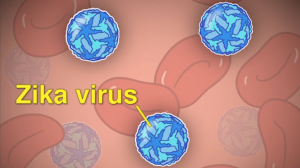NEW YORK (Reuters Health) – High doses of docosahexaenoic acid (DHA) lowered the risk of hay fever in male toddlers born prematurely, researchers from Australia reported online today in Pediatrics.
DHA supplementation also reduced the need for oxygen in some preemie subgroups, possibly lowering their risk for bronchopulmonary dysplasia.
But in general, most of the study outcomes failed to show improvement with DHA supplements.
In a randomized trial, Dr. Peter G. Davis from Royal Women’s Hospital, Victoria, Australia and colleagues had 657 preterm infants (less than 33 weeks gestation) consume breast milk from mothers who did or didn’t take capsules containing tuna oil.
The primary objective, reported two years ago, was to see whether meeting preemies’ estimated DHA requirements would have any impact on their neurodevelopment, as reflected by the Bayley Mental Development Index (MDI) at 18 months corrected age. Overall, it did not, but it did improve the MDI scores of girls.
When the researchers did the current analysis, they were hoping that DHA, by modulating inflammation, might have modulated the neonatal immune response.
For close to 10 weeks, the mothers in the treatment group received six 500-mg DHA-rich tuna oil capsules per day to achieve a breast milk DHA concentration that was about 1% of total fatty acids. If required, their babies received supplementary formula with similar concentrations of DHA. Mothers in the control group took capsules containing just soy oil.
The risk of bronchopulmonary dysplasia was similar with high-dose DHA (18.8%) and without it (25.1%). Survival to discharge, discharge with oxygen, duration of respiratory support, need for readmission, and postnatal steroid use were all similar in the two groups as well.
At 12 and 18 months, rates of asthma or eczema or requirements for special diets for food allergy did not differ either overall or in any subgroups.
There was, however, a significant reduction in oxygen requirement at a corrected age of 36 weeks gestation in infants who weighed less than 1250 g at birth and in male infants.
In addition, parental reports of hay fever at either 12 or 18 months’ corrected age were 59% lower in the high-DHA infants (3.5%) than in the standard-DHA infants (8.6%), and this difference was especially significant in male infants at 12 months (an 89% reduction, from 7.2% to 0.8%) and at either 12 or 18 months (an 85% reduction, from 10.9% to 1.6%).
“The findings of this study suggest a response to high-dose DHA in the form of decreased hay fever in male infants, and a possible major benefit in reducing the incidence of BPD,” the researchers conclude. “These results add weight to the argument for high-dose DHA supplementation in the most at-risk premature infants, and support previous evidence that DHA may have a role in reducing atopic conditions.”
“The optimal dose of DHA is uncertain, and although the dose used in the DINO trial should be compared with a higher-dose strategy, any products designed for neonates born at <1250 g should contain at least 1% of the total fats as DHA,” they add.
Other therapies shown to improve respiratory and survival outcomes in these children include antenatal corticosteroids and exogenous surfactant.
Pediatrics 2011.




